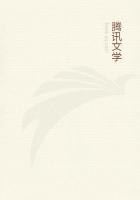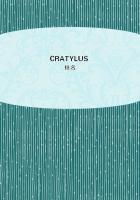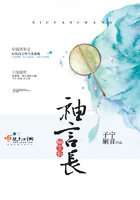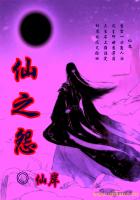I should be far from blaming him for all this. He was of his time; but since his time men have thought beyond him, and seen life with a vision which makes his seem rather purblind. He must have been immensely in advance of most of the thinking and feeling of his day, for people then used to accuse his sentimental pessimism of cynical qualities which we could hardly find in it now. It was the age of intense individualism, when you were to do right because it was becoming to you, say, as a gentleman, and you were to have an eye single to the effect upon your character, if not your reputation; you were not to do a mean thing because it was wrong, but because it was mean. It was romanticism carried into the region of morals. But I had very little concern then as to that sort of error.
I was on a very high esthetic horse, which I could not have conveniently stooped from if I had wished; it was quite enough for me that Thackeray's novels were prodigious works of art, and I acquired merit, at least with myself, for appreciating them so keenly, for liking them so much. It must be, I felt with far less consciousness than my formulation of the feeling expresses, that I was of some finer sort myself to be able to enjoy such a fine sort. No doubt I should have been a coxcomb of some kind, if not that kind, and I shall not be very strenuous in censuring Thackeray for his effect upon me in this way. No doubt the effect was already in me, and he did not so much produce it as find it.
In the mean time he was a vast delight to me, as much in the variety of his minor works--his 'Yellowplush,' and 'Letters of Mr. Brown,' and 'Adventures of Major Gahagan,' and the 'Paris Sketch Book,' and the 'Irish Sketch Book,' and the 'Great Hoggarty Diamond,' and the 'Book of Snobs,' and the 'English Humorists,' and the 'Four Georges,' and all the multitude of his essays, and verses, and caricatures--as in the spacious designs of his huge novels, the 'Newcomes,' and 'Pendennis,' and 'Vanity Fair,' and 'Henry Esmond,' and 'Barry Lyndon.'
There was something in the art of the last which seemed to me then, and still seems, the farthest reach of the author's great talent. It is couched, like so much of his work, in the autobiographic form, which next to the dramatic form is the most natural, and which lends itself with such flexibility to the purpose of the author. In 'Barry Lyndon' there is imagined to the life a scoundrel of such rare quality that he never supposes for a moment but he is the finest sort of a gentleman; and so, in fact, he was, as most gentlemen went in his day. Of course, the picture is over-colored; it was the vice of Thackeray, or of Thackeray's time, to surcharge all imitations of life and character, so that a generation apparently much slower, if not duller than ours, should not possibly miss the artist's meaning. But I do not think it is so much surcharged as 'Esmond;' 'Barry Lyndon' is by no manner of means so conscious as that mirror of gentlemanhood, with its manifold self-
reverberations; and for these reasons I am inclined to think he is the most perfect creation of Thackeray's mind.
I did not make the acquaintance of Thackeray's books all at once, or even in rapid succession, and he at no time possessed the whole empire of my catholic, not to say, fickle, affections, during the years I was compassing a full knowledge and sense of his greatness, and burning incense at his shrine. But there was a moment when he so outshone and overtopped all other divinities in my worship that I was effectively his alone, as I have been the helpless and, as it were, hypnotized devotee of three or four others of the very great. From his art there flowed into me a literary quality which tinged my whole mental substance, and made it impossible for me to say, or wish to say, anything without giving it the literary color. That is, while he dominated my love and fancy, if I had been so fortunate as to have a ****** concept of anything in life, I must have tried to give the expression of it some turn or tint that would remind the reader of books even before it reminded him of men.
It is hard to make out what I mean, but this is a try at it, and I do not know that I shall be able to do better unless I add that Thackeray, of all the writers that I have known, is the most thoroughly and profoundly imbued with literature, so that when he speaks it is not with words and blood, but with words and ink. You may read the greatest part of Dickens, as you may read the greatest part of Hawthorne or Tolstoy, and not once be reminded of literature as a business or a cult, but you can hardly read a paragraph, hardly a sentence, of Thackeray's without being reminded of it either by suggestion or downright allusion.
I do not blame him for this; he was himself, and he could not have been any other manner of man without loss; but I say that the greatest talent is not that which breathes of the library, but that which breathes of the street, the field, the open sky, the ****** earth. I began to imitate this master of mine almost as soon as I began to read him; this must be, and I had a greater pride and joy in my success than I should probably have known in anything really creative; I should have suspected that, I should have distrusted that, because I had nothing to test it by, no model; but here before me was the very finest and noblest model, and I had but to form my lines upon it, and I had produced a work of art altogether more estimable in my eyes than anything else could have been.
I saw the little world about me through the lenses of my master's spectacles, and I reported its facts, in his tone and his attitude, with his self-flattered scorn, his showy sighs, his facile satire. I need not say I was perfectly satisfied with the result, or that to be able to imitate Thackeray was a much greater thing for me than to have been able to imitate nature. In fact, I could have valued any picture of the life and character I knew only as it put me in mind of life and character as these had shown themselves to me in his books.


